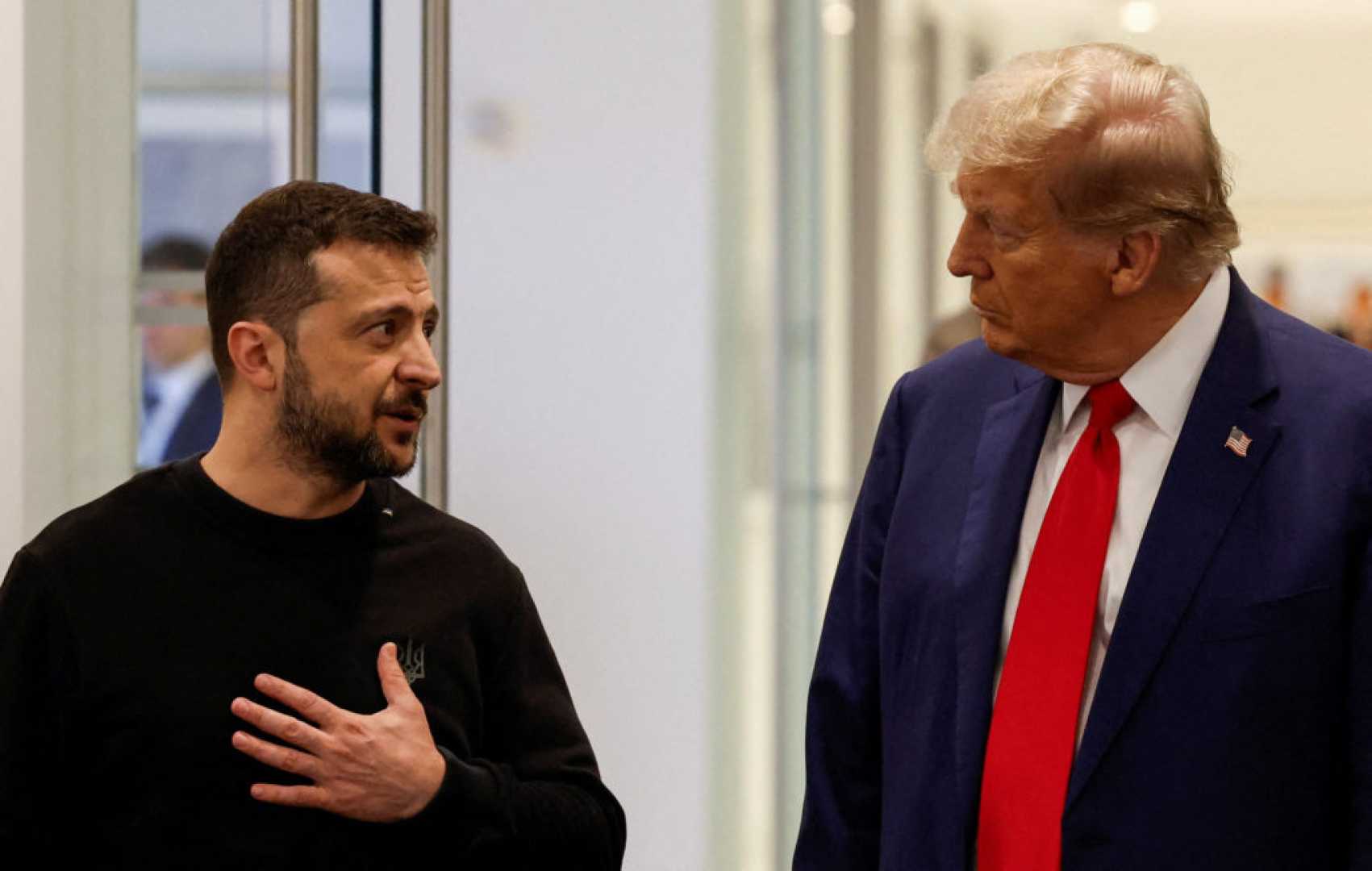World
Ukraine Faces Dual Threats as Support from US Wavers

KYIV, Ukraine (AP) — As the third anniversary of Russia’s full-scale invasion approaches, the mood in Ukraine is tense and somber. The country grapples not only with the persistence of Russian aggression but also with concerns over fading support from longtime ally, the United States.
Recent comments from President Donald Trump have intensified fears among Ukrainians. In a turn that echoes Russian propaganda, Trump referred to Ukrainian President Volodymyr Zelenskyy as a “dictator” for starting the war with Russia. This has shocked many in Ukraine, where the populace has rallied around Zelenskyy, viewing him as a symbol of national resistance.
“Yes, he’s not a perfect president, but he’s not a dictator,” said Kateryna Karaush, a 25-year-old tech worker from Kyiv. “It feels like the whole world is against us,” she added, critiquing Trump’s embrace of Russian narratives.
The sentiment across the country reflects a deeper exhaustion after nearly three years of conflict, with hundreds of thousands dead or wounded, and millions displaced. A recent poll from the Kyiv International Institute of Sociology showed 57% public trust in Zelenskyy, pointing to the leader’s continued support despite Trump’s criticisms.
Trump’s remarks have drawn bipartisan backlash in U.S. Congress, where there has historically been strong support for Ukraine’s defense. Even within Ukraine, some dissent against Zelenskyy has transformed into unified support amidst international pressures.
Yaroslav Zhelezniak, a member of the opposition party Holos, emphasized that “only Ukrainian citizens have the right to judge” their elected leader. This stance has been echoed by citizens who feel they have no alternative but to endure the current conflict without their traditional U.S. support.
As Trump alludes to a desire to negotiate peace quickly, many Ukrainians fear that such hasty diplomacy without their input could lead to unfavorable outcomes. Lawmakers in Ukraine, like Volodymyr Ariev from the opposition European Solidarity party, insist that any electoral processes or peace agreements must wait until proper security frameworks are established.
“Elections are not needed right now,” Ariev stated. “They should only take place when we understand the framework of a peace agreement with Russia.” Meanwhile, Zelenskyy’s advisor, Mykhailo Podolyak, warned about potential Russian interference in any electoral process, emphasizing the necessity of stability first.
Despite tightening external pressures, Ukrainian soldiers maintain their resolve. “Even if we don’t get enough weapons or funding is cut, that doesn’t change our duty to fight,” said an officer from the front lines, advocating for the spirit of resistance. “No shells? We’ll take up rifles. No rifles? We’ll grab shovels.”
As calls grow among some U.S. officials for a fresh approach to U.S.-Ukraine relations, including suggestions for troop deployments in Europe, the Ukrainian military faces ongoing struggles against Russian advances. Increasingly, the fate of the nation could hinge on international support—both military and diplomatic—as they navigate a shifting landscape marked by internal unity and external uncertainty.
Contributions to this story were also made by Associated Press journalist Volodymyr Yurchuk from Kyiv.












